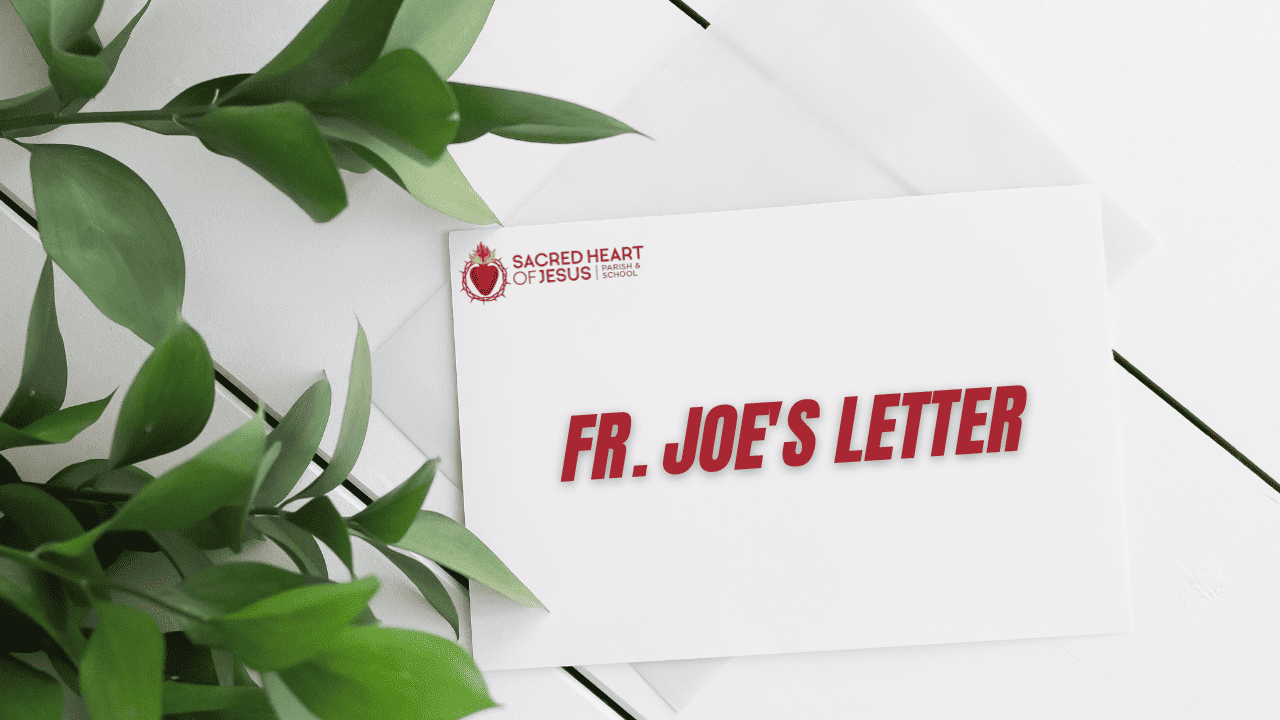During this month of the Poor Souls, we are reminded to pray for those who have gone before us in faith. Whenever we lose someone we love, we always wonder what happens to them. I often wonder what they might be experiencing at the moment when people have gathered for the funeral Mass. I think it is a moment when the one who has died is experiencing the fullness of God’s love even though they may not yet be united to Him totally in the kingdom of heaven.
The funeral Mass is the first Mass to be offered for that person who has died, and it is especially important, yet so often it is omitted because the family does not want to be bothered. They would much rather have something shorter and in some cases nothing at all, save a few prayers at the grave. If only they knew what they were depriving their loved one of. In other cases, it is the one who has died who leaves instructions that they want no wake and no funeral Mass because they do not want their loved ones to go through the grieving as if shortening the process or eliminating it all together will diminish their grief. They will still grieve and without the funeral rites their grief will be longer and not shorter. I would dare to say that when someone dies and leaves instructions that there should be no wake or funeral Mass, they will undoubtedly regret their instructions, as in death they will realize how much they need and desire the prayers of the Church. If a loved one of mine should ever make such a request I would acknowledge their request when they make it, but for their own good I would have to disregard it when they die and make sure that they receive all the prayers the Church has to offer. This is how important our prayers for the dead are even if we do not realize it in the present.
The Catechism of the Catholic Church teaches us:
1030 All who die in God’s grace and friendship, but still imperfectly purified, are indeed assured of their eternal salvation; but after death they undergo purification, so as to achieve the holiness necessary to enter the joy of heaven.
1031 Church gives the name Purgatory to this final purification of the elect, which is entirely different from the punishment of the damned.606 The Church formulated her doctrine of faith on Purgatory especially at the Councils of Florence and Trent. The tradition of the Church, by reference to certain texts of Scripture, speaks of a cleansing fire: (954, 1472)
1032 This teaching is also based on the practice of prayer for the dead, already mentioned in Sacred Scripture: “Therefore [Judas Maccabeus] made atonement for the dead, that they might be delivered from their sin.”609 From the beginning the Church has honored the memory of the dead and offered prayers in suffrage for them, above all the Eucharistic sacrifice, so that, thus purified, they may attain the beatific vision of God.610 The Church also commends almsgiving, indulgences, and works of penance undertaken on behalf of the dead: (958, 1371, 1479)
Let us help and commemorate them. If Job’s sons were purified by their father’s sacrifice, why would we doubt that our offerings for the dead wouldn’t bring them some consolation? Let us not hesitate to help those who have died and to offer our prayers for them. This month of the Poor Souls is a wonderful time for us to reflect on the mystery of death in our Catholic Faith; our own and that of our brothers and sisters. Let us do so in the light of the teachings of the Scriptures and the Church and not let ourselves be taken in by the popular thought of death and our society’s obvious fear of it.
RECEPTION OF HOLY COMMUNION. It seems that there are a number of people who would like to kneel to receive Holy Communion. To accommodate this desire more easily, we will be placing two kneelers in the main nave of the church so that people could more easily do this. We have been doing this for the weekday Masses and it seems to work pretty well. This would not work in the east or west nave because there is not enough room. So, if you would like to receive Holy Communion kneeling, please sit in the main nave. This is simply a way that we can encourage those who wish to show this particular gesture of reverence while receiving Holy Communion.


